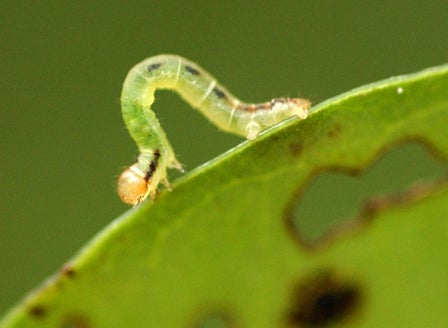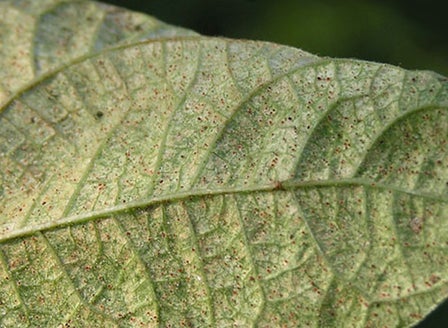Introduce a splash of tasty colour to your patio or garden with an attractive capsicum plant. Also known as a pepper, the capsicum has been in the human diet for thousands of years. Technically classed as a berry, capsicums are easy to grow and used in a wide variety of dishes.
Planting Calendar
Best planting time in the North Island is spring through to summer. In the South island, capsicum are best germinated in July but planted October onwards when the temperatures warm up.
Harvest In
75 - 90 Days
Initially, all capsicum fruits are green in colour, but as they mature, they either stay green or slowly turn red, yellow, orange, black or purple as per the variety. Fruit set is usually after 45- 60 days after planting and fruit are ready for harvest after about 75-90 days after planting. It is advisable to cut the fruit with sharp secateurs rather than pulling them off as it can damage the plant.
Prepare
Position
Capsicum plants thrive best in a sunny position, or a spot that gets at least 6 hours of direct sun a day.
Soil
Well-draining soil, rich in organic matter works best for growing capsicums. When planting in the ground, the preferred pH of the soil is 6.5 - 7.5 - top up your existing soil with Living Earth Organic Veggie Mix with an added application of Kings Natures Organic Fertiliser. In pots and containers, use Kings Container Mix to plant capsicum seedlings. Capsicums are sensitive to calcium deficiency, so it is advisable to add Aquaticus Organic Soil and Plant Conditioner at the time of planting and later in the growing season, this applies to plants grown in the ground and pots.
Plant
Gently tap the pot so that the seedling comes out, take care not to damage any roots Plant so that the roots are all planted into the soil. Firm the soil around the plant gently, then water in with Aquaticus Garden Booster. When planting in the ground, space the seedlings at least 35-45 cm apart from each other.
Care
Watering
Adequate watering is necessary in the growing season for good growth and yield. Water deeply every second day around the roots in summer, avoiding getting the leaves wet. Insufficient watering results in reduced leaf size as well as a reduced root mass. However, too much watering can cause root rot, delayed flowering and fruit disorders.
Feeding
Fertilise capsicum plants throughout the growing season with Kings Liquid Tomato Food, applied once every fortnight along with applications of Kings Natures Organic Fertiliser every 8 weeks. If the plants are well nourished and irrigated, they will result in a good yield. For capsicums that are growing in pots liquid feed with Kings Tomato Food.
Protecting
Protect against Slugs and Snails with regular application of Tui Quash
Mulching
Mulch around the base of the plants (make sure that the mulch does not come into direct contact with the stem of the plant) with Living Earth More than Mulch. Mulching helps to reduce weeds as well as aiding the soil to retain moisture.
Spraying
Aphids, caterpillars, and thrips are common insect pests which can be controlled by spraying Bugtrol.
Pruning
When removing fruit it is best to cut it off the plant rather than pulling as the plant my break.
General Care
When using sprays, chemicals or fertilisers always read the label and follow the instructions. Apply sprays in the evening to avoid harming beneficial insects.
Beginner Tip
Capsicum plants are fragile and need to be supported by stakes and ties, or support frames. When fruits are formed, plants may need extra support as they can become top heavy.
Expert Tip
Capsicum plants are sensitive to nutritional deficiencies indicated by poor fruit set, yellowing of leaves and defective flower formation. Blossom end rot and black spots (also called stip) on fruit are an indication of calcium deficiency.
Frequently Asked Questions
Can I grow capsicum from seed I saved from my supermarket bought fruit?
Yes you can, though it may not turn out the same as most supermarket fruit and veg are hybrids, meaning these are specifically crossed to make desirable fruit from its parent plants. Seed from hybrids will revert back to one of the previous parents instead. We recommend either growing from heirloom fruit and veg, or buy seed from your garden centre instead.
How often should I water my capsicum plants?
Adequate watering is necessary in the growing season for good growth and yield. Water deeply every second day around the roots in summer, avoiding getting the leaves wet. Insufficient watering results in reduced leaf size as well as a reduced root mass. However, too much watering can cause root rot, delayed flowering and fruit disorders.
When and how should I harvest capsicum?
Capsicums can be harvested when they reach the desired size and colour. Use a sharp knife or scissors to cut the fruit from the plant, leaving a short stem attached.
Do capsicum plants need fertiliser?
Fertilise capsicum plants throughout the growing season with Kings Liquid Tomato Food, applied once every fortnight along with applications of Kings Natures Organic Fertiliser every 8 weeks. If the plants are well nourished and irrigated, they will result in a good yield.
How much sunlight does capsicum need?
Capsicum plants thrive best in a sunny position, or a spot that gets at least 6 hours of direct sun a day.

